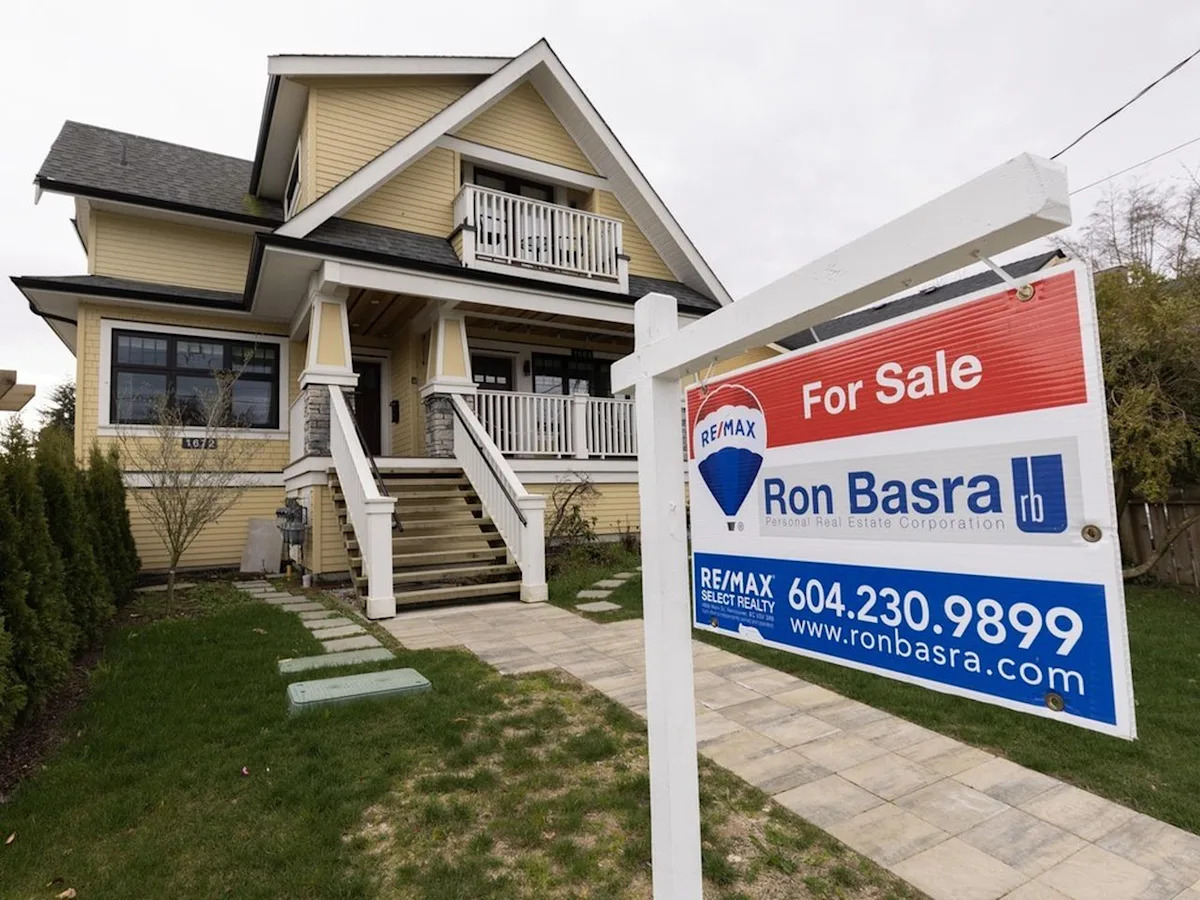Housing affordability is improving across Canada, including in B.C., but the Vancouver area remains the least-affordable market, according to a report from RBC, Canada’s largest bank.
The report says housing affordability is improving because of lower interest rates, flat prices and sustained household income gains.
However, while further improvement in housing affordability is expected, the speed of improvement is likely to slow as the effect of earlier interest rate cuts fade, according to the report by the bank’s assistant chief economist, Robert Hogue.
The improving picture means that a Canadian household earning the median income of $85,400 needed to spend 53.6 per cent of that to cover the costs of owning a home in the last three months of 2025, down from a peak of 63.5 per cent at the end of 2023 but still high by historical standards.
That picture is improving in B.C. as well, but the proportion of household income eaten up by housing costs remains high.
It’s at 89.2 per cent for Vancouver, down from more than 100 per cent in 2024. In Victoria, the affordability measure rose slightly to 69 per cent, but is down from a high of 80 per cent in 2024.
That’s much higher than in places like Calgary (40.9 per cent), Edmonton (32.2 per cent), Montreal (48.4 per cent) and Ottawa (43.9 per cent). Toronto is at 66.4 per cent.
A decade ago, less than 40 per cent of median income was needed to cover housing. In the early 2000s, it was in the low 30 per cent range.
“For your average British Columbian, and especially for a household in Vancouver, it is still not an affordable housing market,” Hogue said.
RBC’s housing affordability index shows the proportion of median pre-tax income that would be needed to cover mortgage payments with a 20 per cent down payment, property taxes and utilities based.
Housing affordability is worse for single detached homes.
In the latest figures for Vancouver, 125.9 per cent of the median household income would be needed to cover housing costs. It is 78.7 per cent in Victoria.
In B.C., and particularly in the Lower Mainland, housing affordability has been a significant concern for years. The provincial government has taken steps to try to cool housing prices, including introducing measures such as a foreign buyers’ tax and an empty homes tax.
Premier David Eby’s NDP government has also taken control of municipal zoning, done away with public consultation on approved projects and will allow several units to be built on land previously designated for single family use in an effort to increase housing supply.
Hogue said some of these policy measures have seen some success.
But he noted that while there has also been a genuine effort to grow the housing supply, it is not anywhere strong enough to satisfy demand.
“This is going to take a very long time to address,” noted Hogue. “And, so, we urge all policymakers to keep at it and to continue to explore various ways to reduce construction costs.”
He said the federal government’s new Build Canada program could be helpful if it focuses on much-needed “deeply” affordable housing units.
Prime Minister Mark Carney’s Liberal government announced that a new federal agency will be tasked with building more affordable homes with an initial budget of $13 billion, meant to offer financial incentives, bulk permitting and access to federal lands.
Thomas Davidoff, an economics professor at the University of B.C.’s Sauder School of Business, said even with housing affordability improving, affordability remains “pretty” terrible.
That’s led to a bid-ask spread between listing prices and what buyers are willing and able to pay, said Davidoff, director of the UBC centre for urban economics and real estate.
“And so we’ve got very, very slow transactions,” he said.
Davidoff said policies enacted in B.C., including stricter regulations on Airbnb rentals, have helped cool housing prices.
But there is possibly more that could be done such as finding a way to tax high-value homes that have occupants not paying any income tax, he said.
That would also put pressure to have those homes come on the market and potentially be re-developed at higher densities, noted Davidoff.
Related
